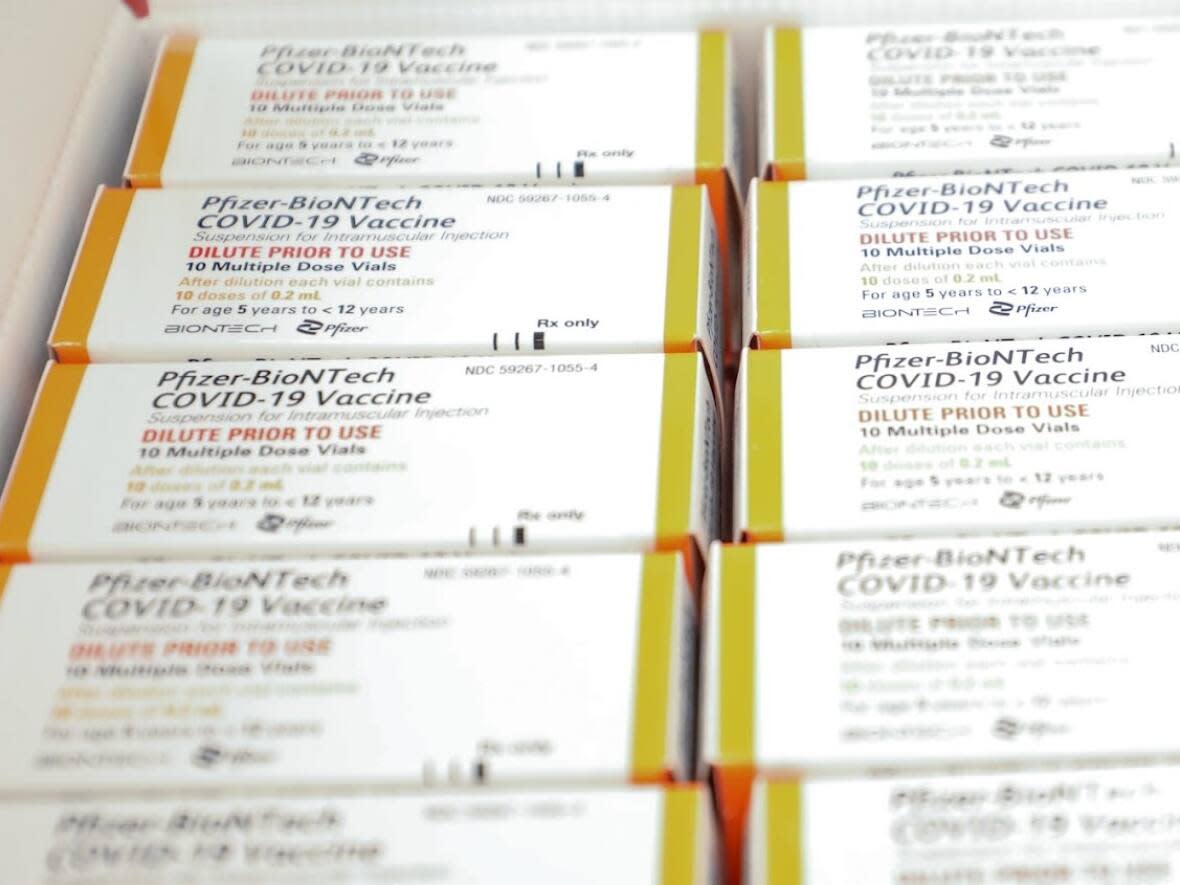Pharmacists see slower-than-expected demand for COVID vaccine for kids 5 to 11

With a hoped-for return to school less than two weeks away, the pace of vaccinations for children aged 5 to 11 is slowing down in New Brunswick.
Only 51.3 per cent of children in that age group had received a first dose as of Monday afternoon, according to the province's COVID-19 dashboard.
Pharmacists have seen a slower than expected demand for first shots.
"There aren't that many bookings. There are only a few hundred a day and that's spread around 130 pharmacies," says Jake Reid, executive director of the New Brunswick Pharmacists Association.

"It does seem to be a relatively slow pace for people getting out and getting their first dose."
Reid says Public Health officials were hopeful before Christmas that first doses would be administered to 50 per cent of children aged 5-11 by the end of 2021.
"We only just crossed that threshold, for first doses that is, just a few days ago," he said.
"That would tell me that it is going slower than anticipated."
In Nova Scotia, 63 per cent of children aged 5 to 11 have a first dose, while Newfoundland and Labrador was at 72 per cent as of last Friday.
Vaccination appointments for New Brunswick children aged 5 to 11 opened on Nov. 23. Because the province requires an eight-week interval between first and second doses, almost no children in that age range have two shots.
Premier Blaine Higgs said last week he's determined to see New Brunswick students back in school for in-person learning starting on Jan. 31.
At the current rate of around 300 to 650 first shots being administered a day, it would take until sometime in March for all of the approximately 50,000 children aged 5-11 to get a first dose, and even longer for them to be fully vaccinated.
Supply not an issue
Reid says he's not sure why the pace is slowing down, but it's not a lack of vaccines.
"Inventory is not an issue at this point. For the pharmacies administering the pediatric vaccines, they have the ability to get as much as they want," he says.
While appointments can take longer to get, "there still should be lots of room, so it's really about demand. It's not a capacity issue, it's not an inventory issue. It would seem to be a demand issue right now."
While children aren't hit as hard by COVID-19, there can still be serious cases, Reid says. And an infected child without symptoms can still transmit the virus to more vulnerable adults.
In November a handful of schools organized on-site after-school vaccination clinics in partnership with local pharmacies. Those can't happen now because schools are closed, which Reid says may also be affecting the numbers.
"Obviously there's a convenience factor there. … That was a success story and we'd like to see that replicated."
While some regional health authority clinics have been encouraging walk-ins for first, second and booster shots, all vaccinations for children aged 5-11 must be done through appointments.
Public Health did not respond Monday to a request for a comment.

